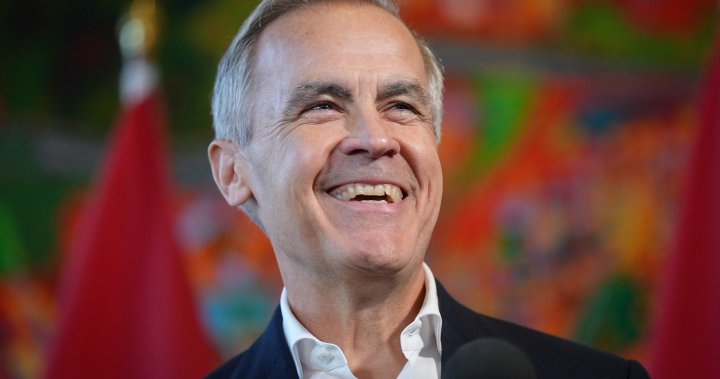Mark Carney’s appearance on The Daily Show with Jon Stewart sparked significant interest, primarily due to the ongoing speculation surrounding his potential candidacy for the leadership of the Liberal Party of Canada. While Carney refrained from explicitly declaring his intention to run, his comments and the context of the interview strongly suggest he is seriously considering a foray into Canadian politics. The interview provided a platform for Carney to outline his views on the current political landscape and what qualities a successful Liberal leader would need to possess, further fueling the speculation surrounding his political ambitions. This analysis delves into the key takeaways from the interview, exploring Carney’s veiled pronouncements, his assessment of the political climate, and the broader implications of his potential candidacy.
Carney’s characterization of himself as a political “outsider” is particularly noteworthy. This positioning resonates with a segment of the electorate that has grown disillusioned with traditional politicians and seeks fresh perspectives. His extensive experience in finance, including his leadership roles at the Bank of Canada and the Bank of England during times of economic crisis, positions him as a credible voice on economic matters, an area of significant concern for many Canadians. By emphasizing the need for change and a focus on addressing economic challenges, Carney implicitly presented himself as the candidate capable of delivering these solutions, subtly advancing a potential leadership narrative. His comments avoided an outright declaration, maintaining a strategic ambiguity that allows him to gauge public reaction and build anticipation.
The interview also showcased Carney’s ability to engage in lighthearted banter, as demonstrated by his humorous exchange with Stewart regarding the Canada-US relationship. This exchange, although seemingly lighthearted, served a dual purpose. It highlighted Carney’s diplomatic skills and his ability to address complex issues with a touch of humor, a quality often appreciated by the public. Furthermore, his comments about preparing for potential US trade actions underscored his understanding of international relations and his preparedness to address potential challenges, reinforcing his image as a capable leader on the global stage. This nuanced approach allowed him to address serious concerns while maintaining an engaging and accessible demeanor.
Carney’s critique of Conservative Party leader Pierre Poilievre offered a glimpse into his political leanings and his potential strategy should he choose to run for Liberal leadership. By drawing a parallel between Poilievre and pro-Brexit politicians in the UK, Carney indirectly criticized Poilievre’s economic policies and political style. This comparison served to align Poilievre with a political movement often viewed as disruptive and divisive, potentially undermining Poilievre’s credibility with certain segments of the Canadian electorate. Furthermore, by emphasizing his own private sector experience, Carney implicitly contrasted himself with Poilievre, whom he portrayed as a career politician disconnected from the realities of the business world.
The timing of Carney’s appearance on The Daily Show is strategically significant. With the Liberal Party facing challenges and the leadership question looming large, Carney’s intervention injected fresh energy into the political discourse. His comments fueled the already rampant speculation about his potential candidacy, placing him at the center of national attention. This carefully orchestrated appearance allowed him to subtly test the waters of public opinion without formally entering the race, giving him valuable insight and allowing him to shape his narrative before making a formal announcement.
The potential implications of a Carney candidacy are far-reaching. His entry into the race would significantly reshape the dynamics of the Liberal leadership contest. His experience, reputation, and public profile would make him a formidable contender, potentially drawing support from a broad range of voters. His focus on economic issues could resonate with voters concerned about the current economic climate, positioning him as a viable alternative to the current government. Furthermore, his international experience and connections could enhance Canada’s standing on the global stage. However, his perceived “outsider” status could also be a double-edged sword, potentially alienating some within the Liberal establishment.
In conclusion, Mark Carney’s appearance on The Daily Show was a carefully calculated move, offering a glimpse into his potential political ambitions and his vision for Canada. While he stopped short of officially announcing his candidacy, his comments and the context of the interview strongly suggest he is seriously considering a run for the Liberal leadership. His emphasis on economic issues, his critique of the opposition, and his positioning as a political outsider all point towards a potential campaign strategy focused on change and renewal. His appearance ignited significant interest and further fueled speculation, positioning him as a key figure in the unfolding political drama. The coming weeks will undoubtedly reveal whether Carney chooses to formally enter the race, a decision that could have profound implications for the future of the Liberal Party and the Canadian political landscape.

